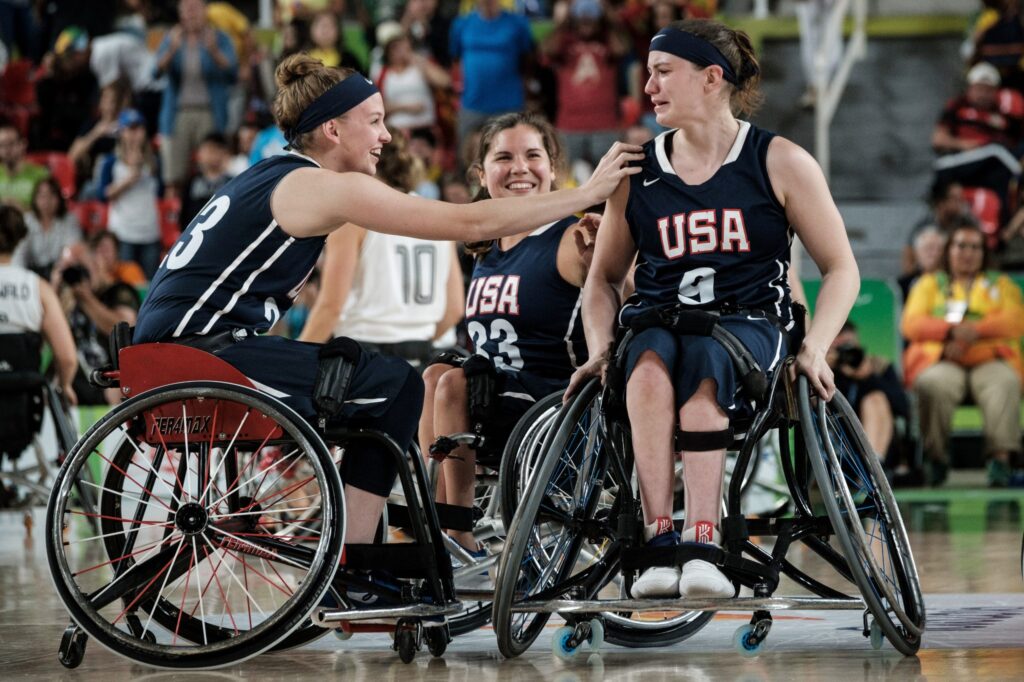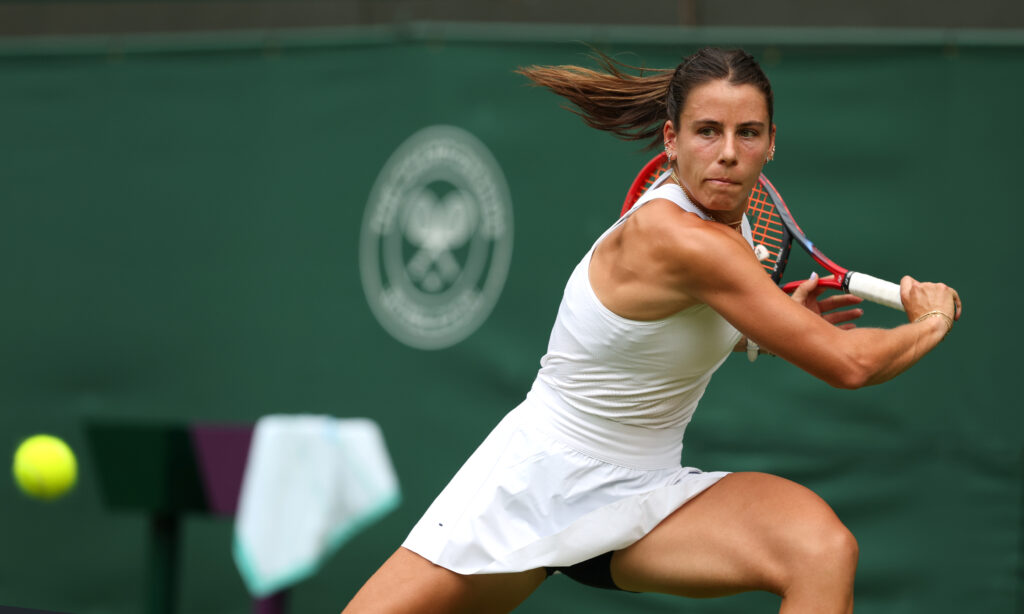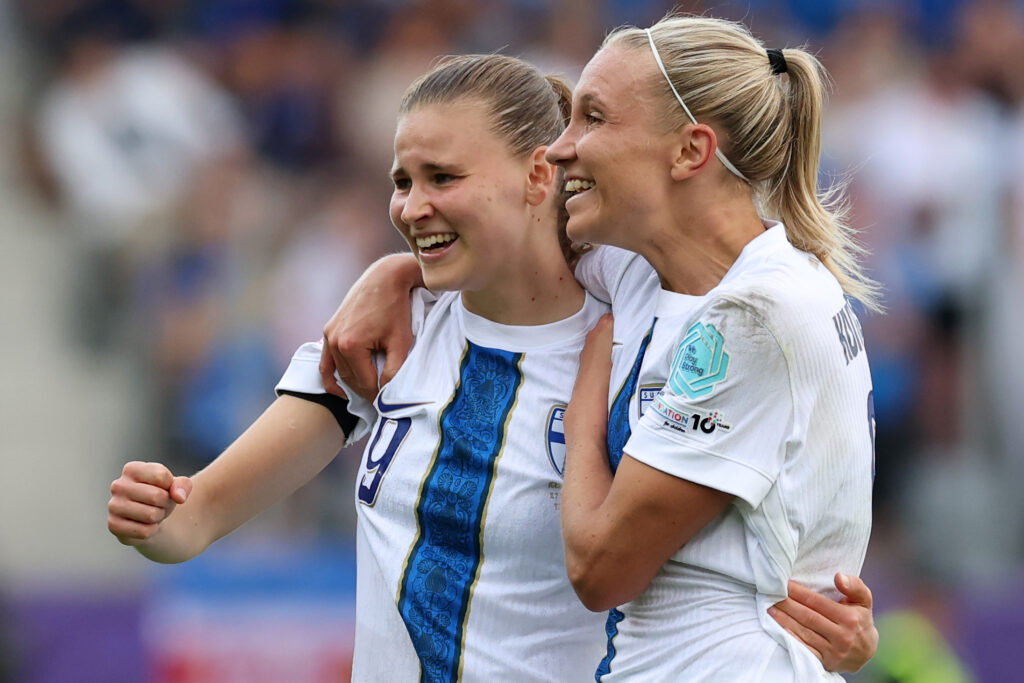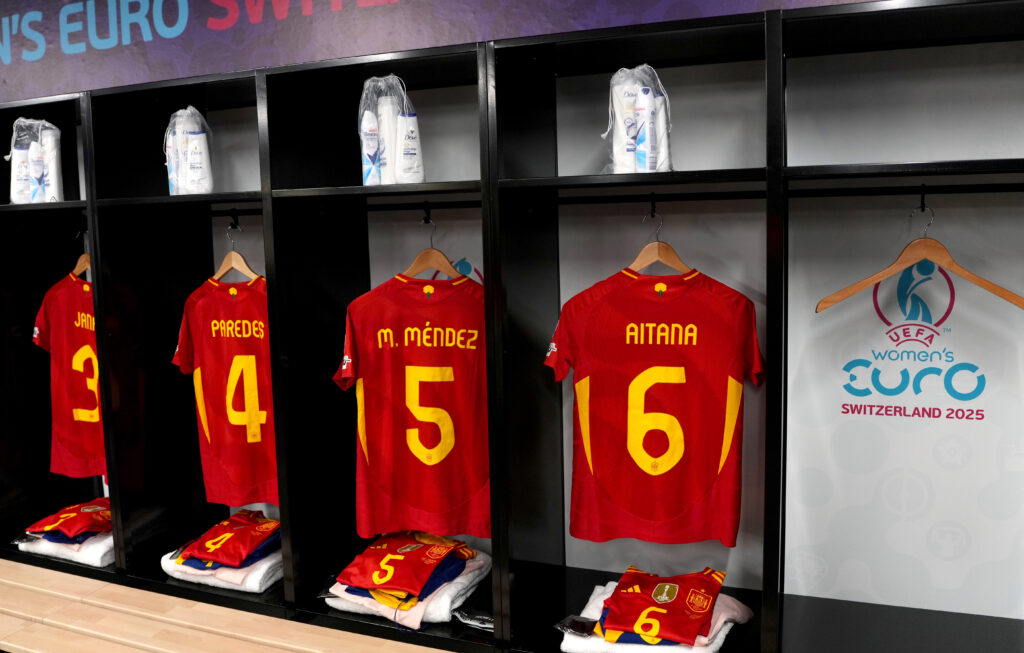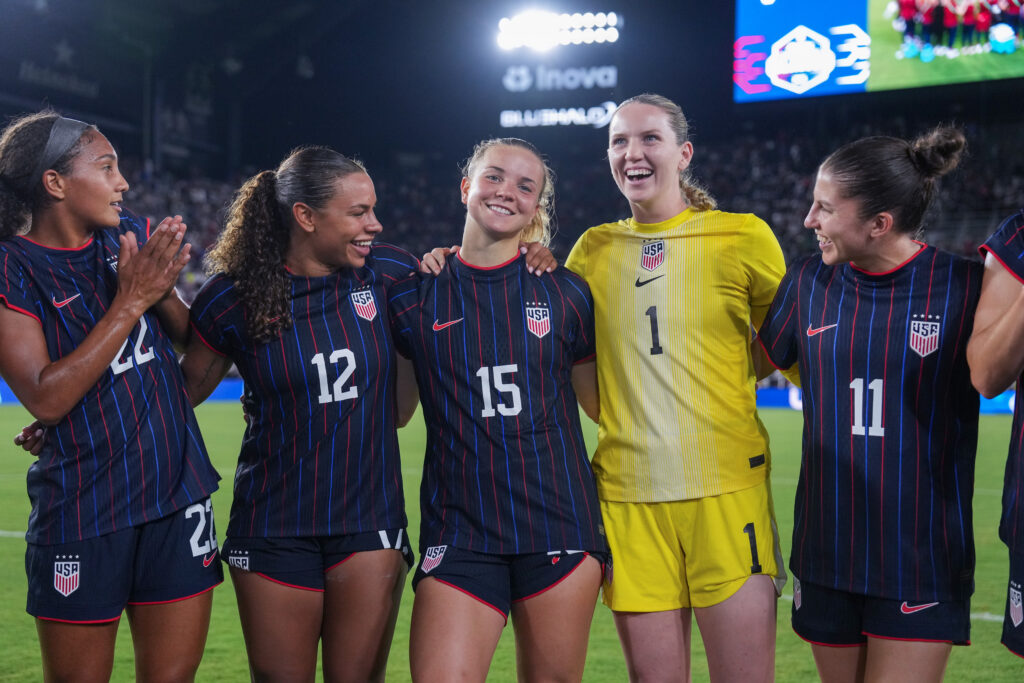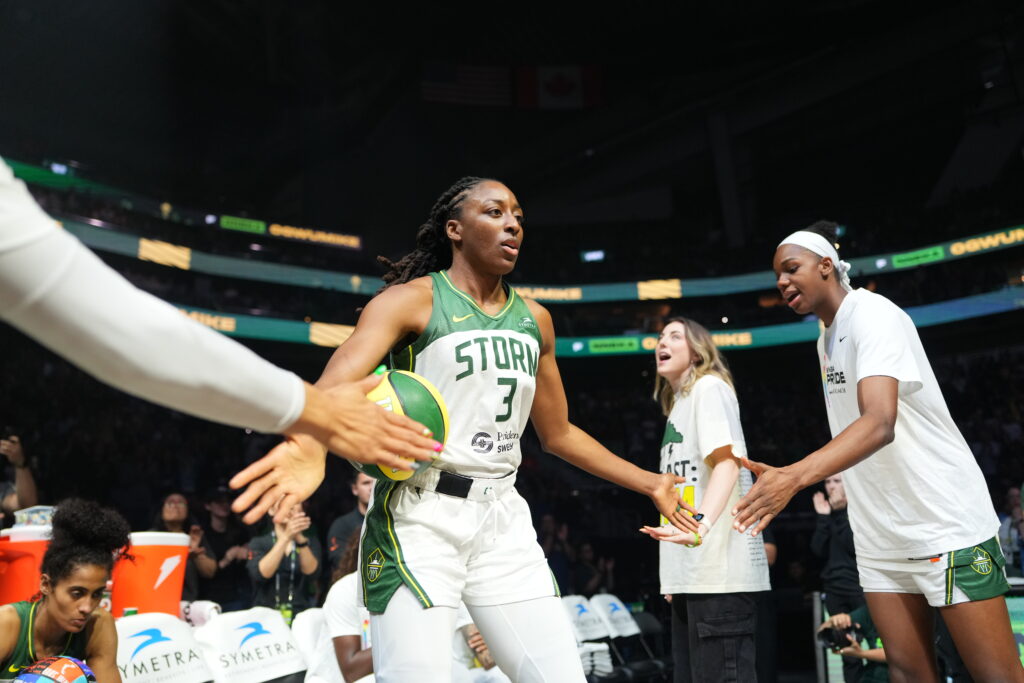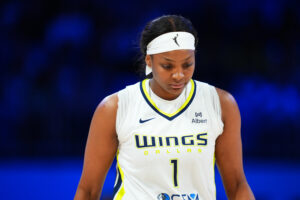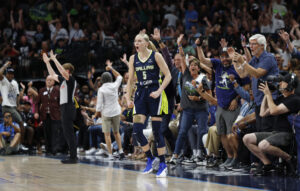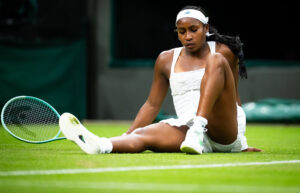Abby Dunkin is a wheelchair basketball player who won gold at the 2016 Paralympics in Rio as well as at the 2019 World Championships in Suphanburi, Thailand. Below, she spoke with Just Women’s Sports about her introduction to wheelchair basketball, the importance of athlete advocacy, and what comes next following her recent retirement from Team USA.
What does it mean to you to openly be a member of the LGBTQ community in sports?
Sports, in general, give you this platform and this voice to be able to talk about stuff that’s going on in today’s society. In that sense, to be part of the LGBTQ community gives us a voice to show that love is love — no matter politics, religion, sexual orientation, or culture. To be able to share that as an athlete on this platform is pretty special. Especially since there are a ton of athletes who share a similar voice — who are also part of the LGBTQ community. It shows that we can be successful and we can be good at what we do, while also being part of the LGBTQ community.
Why do you think it’s so important for athletes to be vocal on social justice issues, especially as they relate to the LGBTQ community?
It’s definitely important for athletes who are LGBTQ to speak up. Like I said, it shows that we can be successful. We can do things, we can be happy in the way we live our lives. We are able to normalize it, in a way. Hopefully, one day, people in the LGBTQ community don’t have to come out. We don’t see straight people having to come out, so we should be treated the same. There has been movement and new laws, like the Supreme Court ruling earlier this year was a huge victory for LGBTQ employees. These things will guide the way so one day we won’t have to come out, we can just be who we are.
What has been the role of sports in helping you come into your identity?
For me, discovering wheelchair basketball was a huge turning point. I grew up in New Braunfels, Texas, so there was basically a church on every corner. I knew a few of my friends who were still in the closet and who had fears of coming out because everyone was so religious. Once I was able to, I went to the University of Texas and, during my freshman year, my teammates and friends pushed me in a positive way to come out of the closet. They said, “Hey, it’s okay. We accept you for who you are.” Being in that atmosphere with coaches who were so supportive and teammates who were so supportive made me feel like I could do it. So wheelchair basketball, for me at least, helped me to come out publicly and be okay with myself. And I was lucky to have loving family and friends who supported me. With basketball, it doesn’t matter who you love, who you play for, what your skin color is or who you vote for — it just matters that you can play ball.
What first drew you to wheelchair basketball?
I grew up playing standup basketball and then, in middle school, I had knee surgery for a torn meniscus. After the surgery, the pain never went away, even though I was physically healed. I was diagnosed with CRPS, or Complex Regional Pain Syndrome. With CRPS, you’re in pain 24/7, even though there is no reason for it. I managed my pain until I was about 16 or 17 and then I realized that I had to do something — it was becoming too much. In 2013, I tried a number of treatments. I tried one treatment where they put electrodes on the outskirts of my chronic pain and I was hooked up to this machine for about an hour a day, five days a week for two weeks. After the first week, I felt really sick. And after the second week, I ended up losing 30 pounds total. One morning, I woke up and I could not walk. I stumbled around and my legs were so tight, I just remember going, “Mom, what is going on?” No one knew what was happening and the doctor refused to see me. So I ended up leaving the treatment early in a wheelchair. I was so excited because I had just been named captain for my high school’s basketball team, and then I came back from this treatment in a wheelchair.
I found wheelchair basketball on YouTube one day and I just thought it was the coolest thing ever. Your arms are jacked and you’re playing ball on chairs. I had no idea people with disabilities could even do that. I had never heard of the Paralympics. My dad was retired military so I was able to try out wheelchair basketball for the first time with guys who had just come back from overseas with either one or both of their legs amputated. I was this 17-year-old scrawny white girl with guys who were twice my age and twice my size, but I absolutely loved the game.
How did you go from playing wheelchair basketball with men in the military to being on Team USA?
From practicing with guys in the military, I got a reference to go and meet with the San Antonio Spurs wheelchair basketball team. They were just getting ready for their season, so I thought I was just going to watch their practice and see what it was all about. Eventually, they invited me onto the roster and I started playing. Then, I got a letter of intent to go play at the University of Texas at Arlington. Literally three months after that, I got recruited for Team USA.
How do you compare the change in perceptions towards LGBTQ athletes and Paralympic athletes over the last few years?
Over the last few years, especially in Rio, it seems like everyone is just coming together, regardless of Olympian, Paralympian, LGBTQ or not LGBTQ. Everybody is just an athlete. As part of the LGBTQ athlete community, I think we all just want to be athletes. We strive for the equality and the equity of just being an athlete. Being part of the LGBTQ community makes it a little bit more special.
So there has been some progression, but what do you think needs to happen or continue to happen in the near future?
I think it is important that we are treated just like our counterparts. As a Paralympian, all we want is to be treated and paid like our Olympian counterparts. Just like how LGBTQ athletes want to be treated the same as straight athletes. We play the same sports at the same competitive level and train the exact same way at the exact same facilities. We all do the same things. So I think equal treatment and equal pay should be at the forefront.
With COVID, how has training been? How is basketball now?
For me, personally, my health has done a total 180 during the pandemic. I’m now walking and doing a lot of things that I never thought I could do. I actually retired from Team USA last month. A lot of it was due to the pandemic and positive health reasons, but it was definitely a hard decision. I know that, for the team, they cannot go back to the Olympic training center for a few months at least.
Are you continuing to play basketball even though you retired from Team USA?
Yeah, that is one of the things I’m looking at for this upcoming season. I’m thinking about moving to North or South Carolina right now. It’s all still up in the air, but I have built my own home gym. So, I’m still training like I’m playing.
